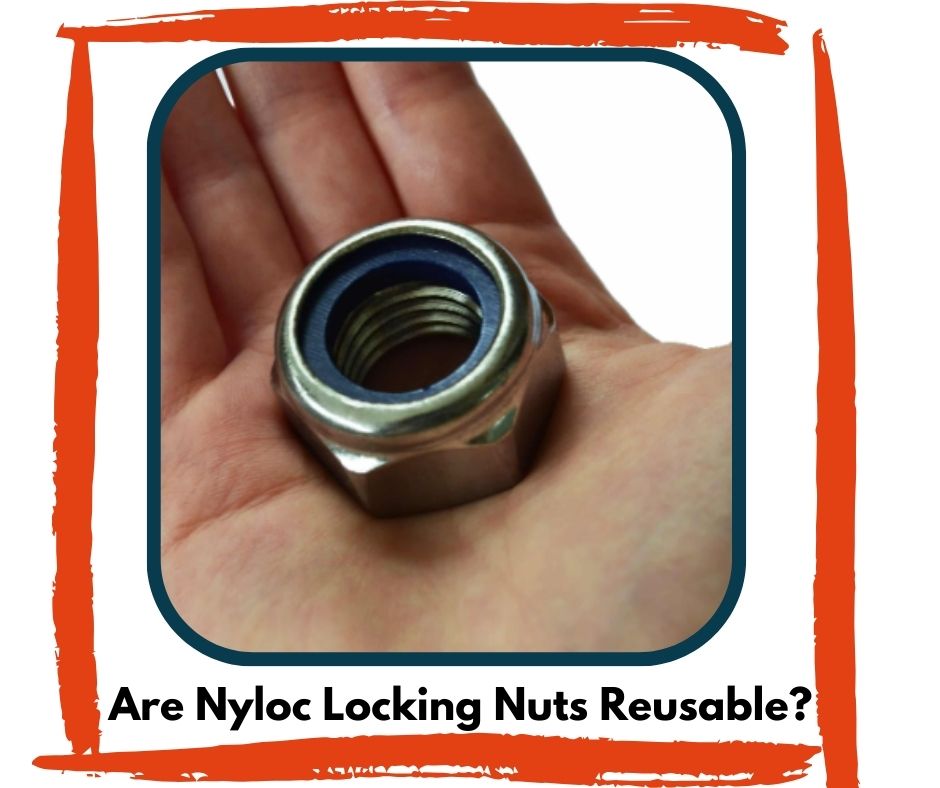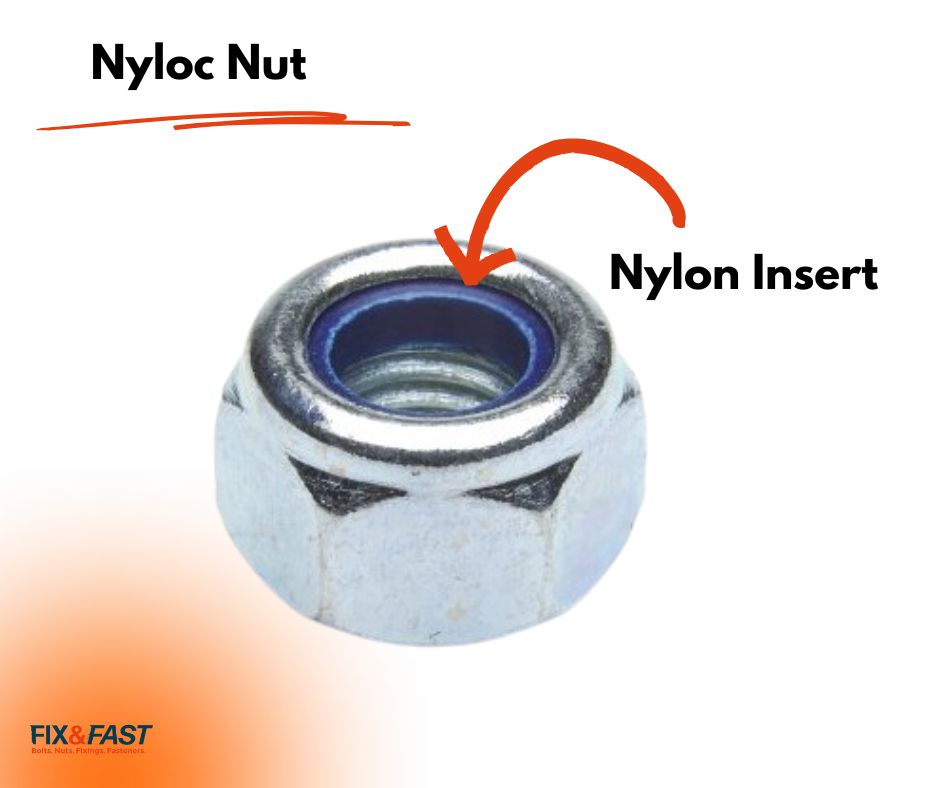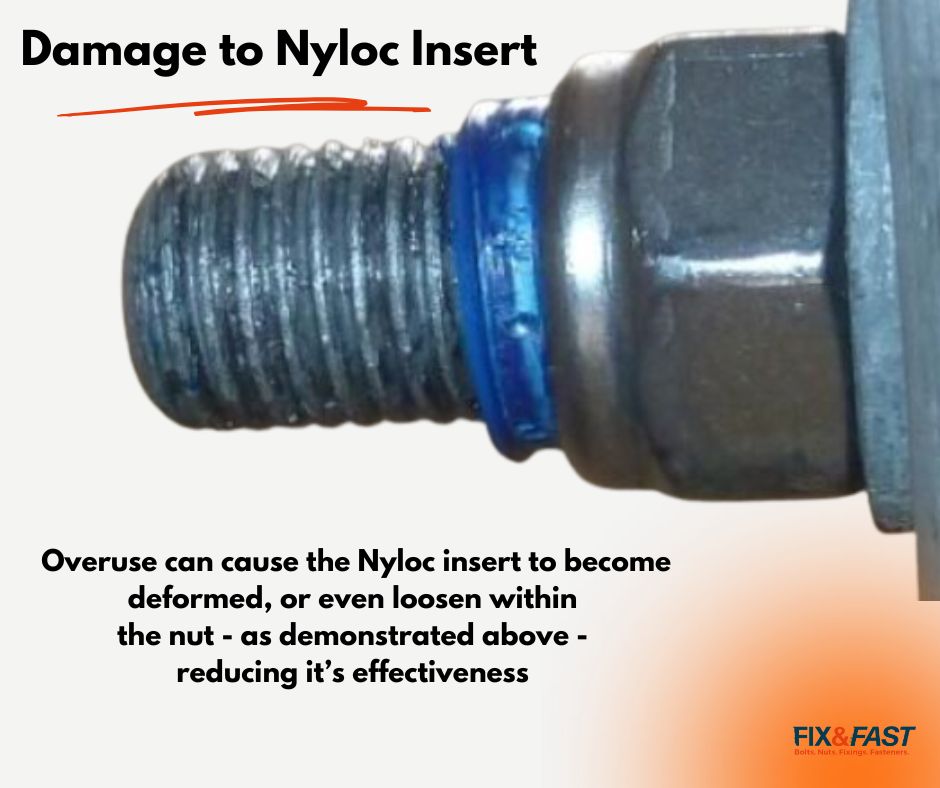Are Nyloc Locking Nuts Reusable?
Are Nyloc Locking Nuts Reusable? Here's What You Need to Know
When it comes to securing fasteners, Nyloc nuts (also known as nylon-insert lock nuts) are a popular choice due to their reliable locking mechanism. These nuts feature a nylon insert that provides extra friction on the bolt, preventing the nut from vibrating loose. But one question that often comes up is whether Nyloc nuts can be reused after they’ve been removed. Let’s take a closer look at whether you should be reusing these locking nuts in your projects.

Understanding How Nyloc Locking Nuts Work
Nyloc nuts are designed to grip onto bolts more securely than standard nuts. They feature a nylon insert within the top portion of the nut. As the nut is tightened onto a bolt the bolt threads cut into the nylon. This then creates friction that resists loosening. This design makes them particularly useful in applications where vibrations or movement could cause a regular nut to work itself free.
The key to their locking ability lies in the deformation of the nylon insert, which grips the bolt threads tightly. However, this very mechanism is also the reason why the reuse of Nyloc nuts is a debatable topic.

Can Nyloc Locking Nuts Be Reused?
The short answer: It depends. While Nyloc nuts are technically reusable under certain circumstances, doing so isn’t always recommended, particularly for critical or high-stress applications.
Why Reusing Nyloc Nuts Can Be Problematic
Nylon Insert Wear: The first time a Nyloc nut is used, the nylon insert deforms to grip the bolt’s threads. Each time the nut is removed and reinstalled, the nylon insert wears a little more. Over time, it may lose its ability to provide sufficient friction, reducing the nut's locking ability.
Reusing it multiple times can make it ineffective, allowing the nut to loosen more easily.
Application Matters: In non-critical situations, where the nuts aren’t subject to heavy loads or vibrations, reusing Nyloc nuts might be acceptable. But for high-stress environments—such as automotive, aerospace, or other safety-critical applications—it's generally unsafe to reuse them.
A worn-out Nyloc nut can compromise the security of the fastener, potentially leading to catastrophic failures.
Loss of Locking Function: The whole purpose of a Nyloc nut is to lock a bolt in place. If the nylon insert becomes too worn, the nut may spin freely, losing its ability to maintain tension. If you find that the nut screws on too easily or spins without resistance, it’s a clear sign that the nylon has lost its effectiveness and the nut should be replaced.

When Is It Okay to Reuse Nyloc Locking Nuts?
There are instances where Nyloc nuts can be reused safely:
Non-critical Applications: If the nut isn’t in a location where security is vital (e.g., light-duty furniture, DIY projects), and if it still provides noticeable friction when threaded onto a bolt, it may be acceptable to reuse the nut.
Light Wear: If the Nyloc nut was only lightly tightened and the nylon insert still provides a firm grip, reuse may be permissible. However, inspect it carefully to ensure the nylon hasn’t degraded.
How to Determine If a Nyloc Locking Nut Is Reusable
Before deciding to reuse a Nyloc nut, perform a quick check:
Inspect the Nylon Insert: Look at the nylon ring inside the nut. If it appears overly deformed, loose, or worn out, replace the nut.
Test the Friction: Thread the Nyloc nut onto the bolt. If the nut spins freely without resistance from the nylon insert, it’s no longer effective.
Consider the Application: For critical applications where failure could result in damage or injury, always err on the side of caution and use a new Nyloc nut.
Best Practices for Reusing Nyloc Locking Nuts
If you do choose to reuse Nyloc nuts, here are a few tips:
- Use in Non-Critical Areas: Avoid reusing Nyloc nuts in high-stress, high-vibration environments like automotive or machinery applications.
- Check Resistance: Always ensure the nylon insert still provides ample resistance when threading the nut onto the bolt. If it doesn’t, replace it.
- Replace Regularly: Even if reuse is acceptable in your situation, it’s still a good idea to replace Nyloc nuts periodically to maintain optimal security.
To Reuse or Not to Reuse?
While Nyloc nuts can technically be reused, their effectiveness diminishes with each use due to the wear on the nylon insert. In non-critical, low-stress applications, reuse might be acceptable if the nut still provides adequate resistance.
However, for safety-critical or high-stress environments, it’s best to replace Nyloc nuts after each use to ensure maximum security and prevent potential failures.
When in doubt, it’s always better to replace the nut and avoid the risk of a compromised fastening system. After all, the cost of a new Nyloc nut is small compared to the potential consequences of failure.
Nyloc Locking nuts are available in bulk or non boxed quantities from www.fixandfast.co.uk







